Mozambique needs “very concrete data” on criminal complaint filed against TotalEnergies – ...
“Some actions in defence of sovereignty” may violate rights, says Chapo
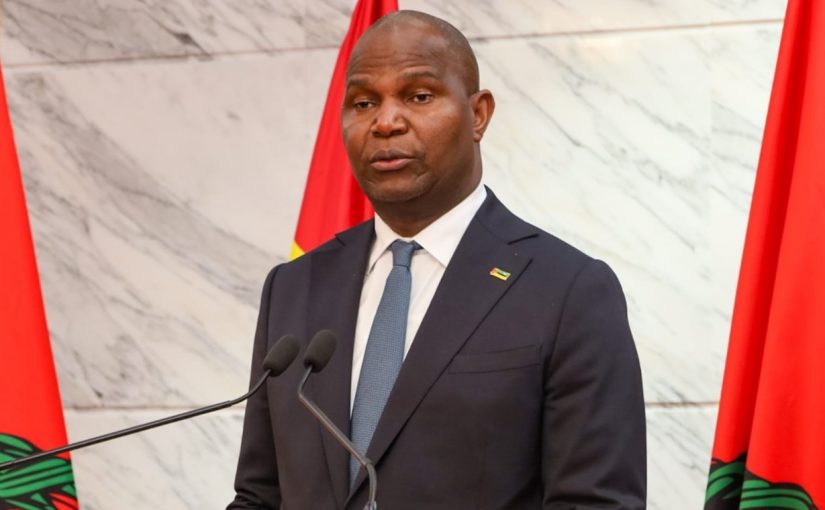
Photo: Presidency
The president of Mozambique has admitted that “some actions in defence of sovereignty” and maintenance of order may “involuntarily” lead to violations of human rights in the country, and revealed that he is investigating all reported cases.
“In difficult times like the one we are going through, we are led to adopt measures and make decisions in defence of our sovereignty, territorial integrity and maintenance of public order and tranquillity, some of which may, involuntarily, lead to violations of human rights,” said the President of Mozambique, Daniel Chapo. on Friday.
When swearing in three members of the National Human Rights Commission (CNDH), elected by the Assembly of the Republic, Daniel Chapo stated that, in carrying out actions aimed at protecting the country’s sovereignty, the state has been confronted with reports of human rights violations, “perpetrated by both public entities and private actors”.
“This information deserves our and your attention, and we are investigating all the cases we are aware of in a variety of ways,” Daniel Chapo said.
The Mozambican president also said that it is the role of the National Human Rights Commission to monitor the conditions of displaced people, ensuring the human rights and freedoms of these groups and preventing their vulnerability from worsening.
“We cannot talk about human rights in Mozambique without looking seriously and empathetically at the situation in Cabo Delgado. It is the duty of the state, its institutions and all of us as a nation to ensure that peace is not just the absence of war, but the active presence of justice, reconciliation, peace and hope for the Mozambican people,” Chapo said.
The president of Mozambique also asked the Human Rights Commission to support the fight against actions that undermine sovereignty, independence and territorial integrity, jeopardizing human rights and individual freedoms, starting with “violent, illegal and criminal demonstrations” and ending with the protection of human rights during cyclones.
“We continue to witness terrorist actions in some districts of Cabo Delgado based on violent religious extremism that have been sowing mourning and pain. In recent weeks, the country and the world have witnessed the occurrence of some sporadic attacks in the Niassa Special Reserve, where terrorists have destroyed public and private infrastructure, looted property and killed our fellow citizens,” said Daniel Chapo when calling for the Commission’s intervention.
READ: Mozambique: Chapo swears in new members of Human Rights Commission
Since October 2017, the gas-rich province of Cabo Delgado has been facing an armed rebellion with attacks claimed by movements associated with the extremist Islamic State group, which have led to the displacement of more than a million people.
In 2024 alone, at least 349 people died in attacks in the province, an increase of 36% compared to the previous year, according to data recently released by the Africa Center for Strategic Studies, an academic institution of the US Department of Defense that analyses conflicts in Africa.
Mozambique has experienced almost five months of social tension, with demonstrations, initially in protest against the election results of October 9, called by former presidential candidate Venâncio Mondlane, resulting in the deaths of 400 people in clashes between the police and protesters, in addition to the destruction of property.
The Mozambican government confirmed at least 80 deaths, in addition to the destruction of 1,677 commercial establishments, 177 schools and 23 health units during the demonstrations.
On March 5, Mozambican parties with seats in parliament and in municipal and provincial assemblies signed a political commitment with the President of Mozambique, aiming at state reforms, which was later transformed into law by the Mozambican parliament.
On March 23, Mondlane and Chapo met for the first time and a commitment was also made to end post-election violence in the country, having met again on May 21 with an agenda to pacify the country.




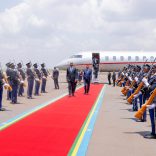
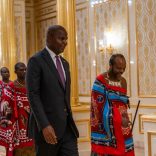
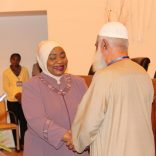
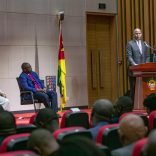




Leave a Reply
Be the First to Comment!
You must be logged in to post a comment.
You must be logged in to post a comment.